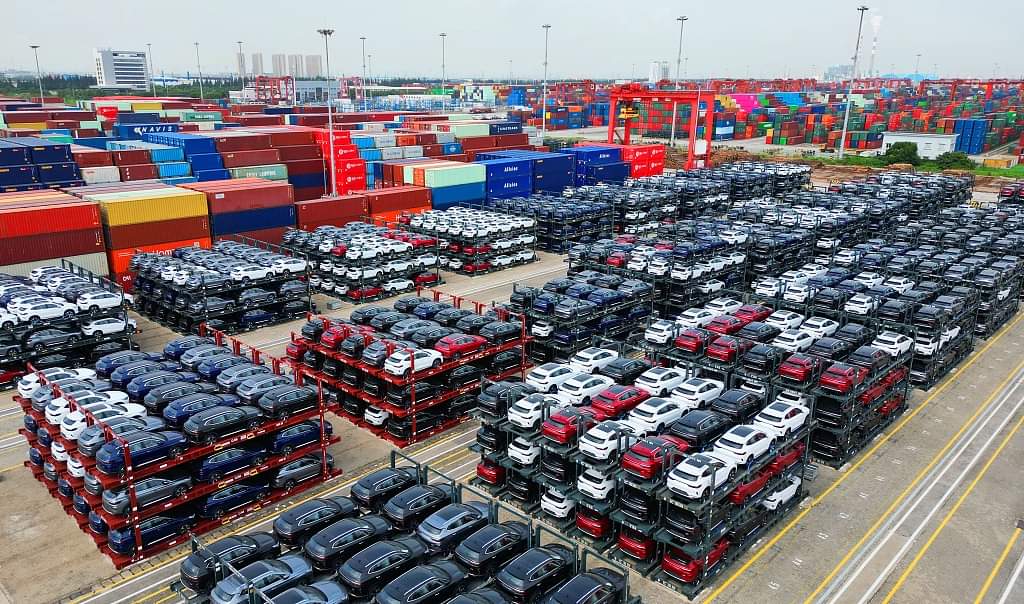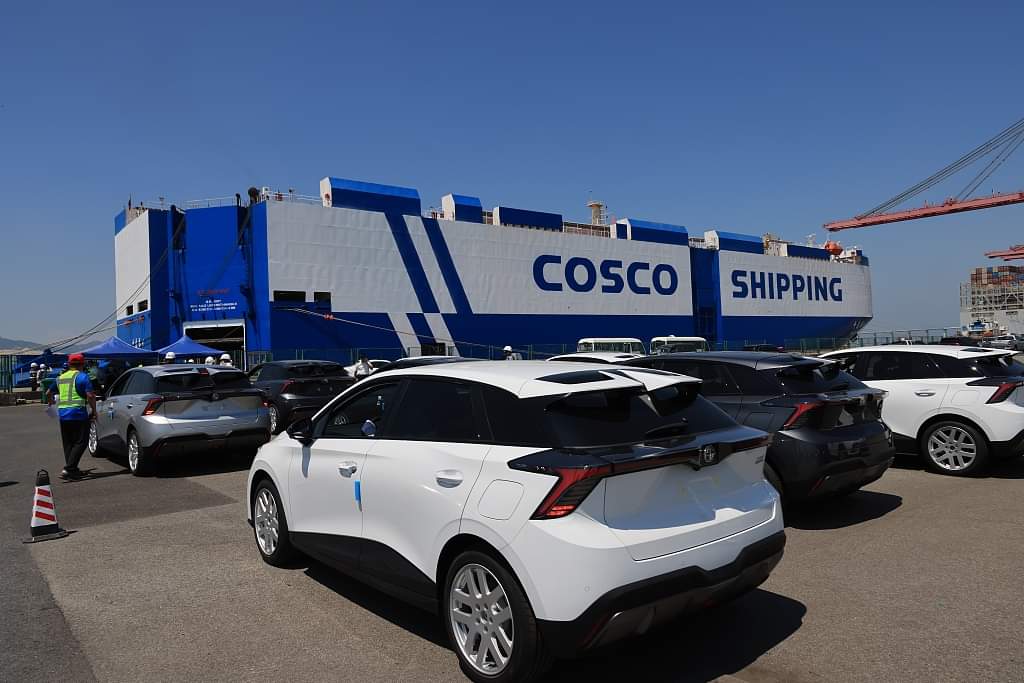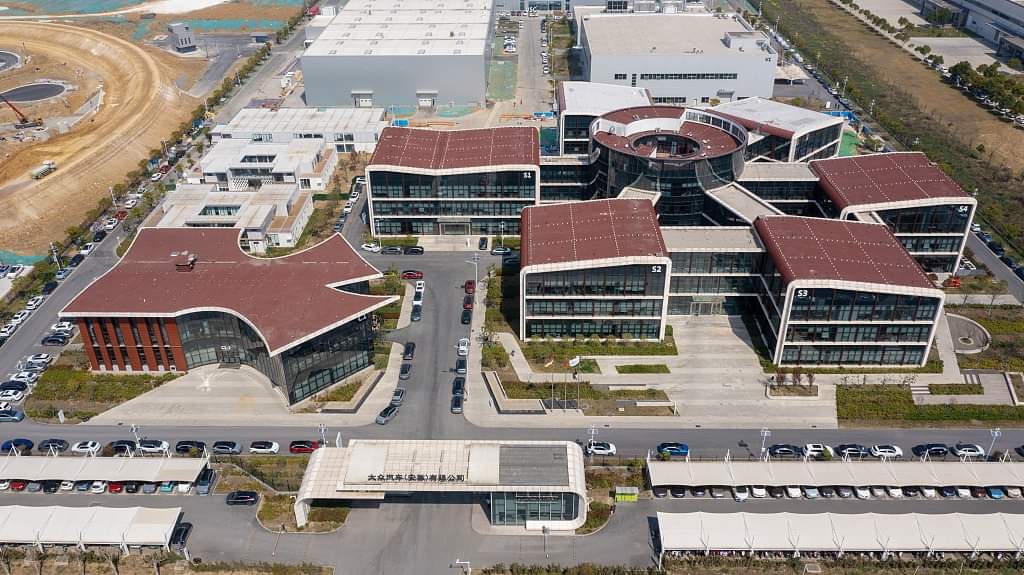China and Germany: Powering Up the NEV Revolution
The past decade has witnessed a remarkable surge in cooperation between China and Germany on the electric vehicle (EV) front. Since their strategic pa
 |
China and Germany: Powering Up the NEV Revolution |
China and Germany: Powering Up the NEV Revolution
The past decade has witnessed a remarkable surge in cooperation between China and Germany on the electric vehicle (EV) front. Since their strategic partnership in 2011, both nations have poured significant resources into research, development, market growth, and infrastructure for New Energy Vehicles (NEVs). This collaboration is driving innovation and propelling both countries towards a cleaner transportation future.
Joint Efforts, Electrifying Results
This Sino-German alliance spans the entire NEV industry chain, from raw materials and battery production to vehicle assembly and charging networks. This comprehensive approach is accelerating progress, evident in China's booming NEV exports. In 2023, China shipped a staggering 1.2 million NEVs overseas, a massive 77.6% increase compared to the previous year. Notably, NEVs now account for over a quarter of China's total auto exports, with the European Union being the primary destination.
Chinese NEV Makers Go Global
Chinese NEV companies are no longer just domestic players. They are actively expanding their footprint in international markets, capitalizing on the growing global demand for sustainable transportation solutions.
German Giants Embrace the Chinese NEV Market
Despite the EU's anti-subsidy investigation, major German car manufacturers like BMW, Mercedes-Benz, and Volkswagen remain committed to China. These industry titans are strategically increasing investments in the Chinese NEV market. They are establishing production and R&D centers in China, showcasing their confidence in the country's vast NEV potential.
A Symbiotic Partnership
This China-Germany cooperation is mutually beneficial. China provides a massive market and production base, while Germany brings in technological expertise and established brand recognition. This synergy is crucial for accelerating the NEV revolution and fostering a greener future for both nations.
Challenges and the Road Ahead
While the China-Germany NEV partnership is flourishing, there are still challenges to address:
Intellectual Property (IP) Concerns: Sharing cutting-edge technology can raise concerns about intellectual property theft. Open communication and fair agreements are essential to fostering trust and collaboration.
Standardization: A lack of unified standards across countries can hinder seamless integration of NEVs and charging infrastructure. Collaboration on global standards will be crucial for smooth international trade and adoption.
Supply Chain Resilience: The global supply chain for NEV components can be vulnerable to disruptions. Joint efforts towards diversification and establishing robust regional supply chains are necessary.
Looking Forward: A Sustainable Future
Despite these challenges, the future of China-Germany NEV cooperation is bright. Both countries are committed to tackling these issues and forging a deeper partnership. Here are some potential areas of further collaboration:
Battery Technology: Continued research and development on next-generation batteries with longer range, faster charging times, and improved safety.
Autonomous Driving: Joint efforts in developing and testing autonomous driving technologies for NEVs, leveraging expertise from both nations.
Circular Economy: Creating a sustainable NEV ecosystem focused on battery recycling and responsible resource management.
By working together, China and Germany can become global leaders in the NEV revolution, paving the way for a more sustainable and environmentally friendly transportation landscape for the world.
The Ripples of China-Germany NEV Cooperation
The impact of China-Germany cooperation on NEVs extends beyond their borders. Here's how it creates a global ripple effect
Global Market Expansion: The success of Chinese NEVs in Europe, fueled by German expertise, encourages other countries to consider NEVs. This can trigger a domino effect, accelerating the global transition towards electric mobility.
Technology Transfer: As Chinese and German companies collaborate, knowledge and technology transfer occurs. This benefits developing countries seeking to enter the NEV market, fostering a more level playing field.
Shift in Manufacturing Landscape: China's NEV production prowess, combined with German engineering, can create a powerful manufacturing hub. This can attract other companies to set up shop, further strengthening the global NEV supply chain.
A Model for International Collaboration
The China-Germany partnership serves as a successful model for international cooperation in the NEV sector. It demonstrates the power of combining resources, expertise, and market access to achieve a common goal – a cleaner and more sustainable transportation future.
A Catalyst for Change
The China-Germany NEV collaboration is a significant development with far-reaching implications. It's not just about two industrial giants working together; it's about accelerating the global shift towards electric mobility and fostering a more sustainable future for our planet.
The Human Element: Powering Innovation
Beyond the statistics and technological advancements, the human element is a crucial factor in the success of the China-Germany NEV cooperation. Here's how people are driving this progress:
Joint Research Teams: Fostering collaboration between Chinese and German researchers fosters cross-pollination of ideas and accelerates innovation. Exchange programs and joint research facilities can further strengthen these bonds.
Skilled Workforce Development: As the NEV industry grows, there's a need for a skilled workforce. Joint training programs and knowledge sharing can equip workers with the necessary expertise to design, manufacture, and maintain NEVs.
Cultural Exchange: Collaboration fosters cultural exchange between Chinese and German engineers, designers, and business leaders. This understanding breaks down barriers and fosters a spirit of cooperation that transcends borders.
Building a Sustainable Future, Together
The China-Germany NEV partnership is a testament to the power of international collaboration in tackling global challenges. By combining their strengths, these two economic giants are not only propelling the NEV industry forward, but also creating a blueprint for a more sustainable future for generations to come. This partnership serves as an inspiration for other countries to join forces and accelerate the transition towards a cleaner transportation landscape for our planet.
The Road Ahead: Unforeseen Bumps and Potential Detours
While the China-Germany NEV partnership is on a promising track, unforeseen challenges can emerge.
Geopolitical Tensions: Strained relations between China and some Western countries, including Germany's key allies, could cast a shadow on the cooperation. Maintaining open communication and prioritizing shared goals will be crucial to navigate these complexities.
Shifting Economic Landscapes: Fluctuations in global economic conditions or trade policies could disrupt the smooth flow of resources and expertise between the two countries.
Domestic Policy Shifts: Changes in government policies in China or Germany could alter the level of support for NEV development, impacting the overall pace of collaboration.
Navigating the Detours: Strategies for Resilience
Despite these potential roadblocks, there are strategies to build resilience:
Diversification of Partnerships: Both China and Germany can explore collaborations with other countries with strong NEV ambitions, mitigating overreliance on each other.
Focus on Shared Goals: Keeping the environmental and economic benefits of NEV development at the forefront can help navigate complex geopolitical situations.
Building Trust and Transparency: Open communication and fostering trust through joint ventures and technology transfer agreements can build a stronger foundation for the partnership.
Conclusion: A Collaborative Journey for a Sustainable Future
The China-Germany NEV cooperation is a dynamic journey, not a fixed destination. By acknowledging potential challenges, developing strategies for resilience, and prioritizing the shared goal of a sustainable future, this partnership can continue to be a driving force in the global NEV revolution. The success of this collaboration hinges not just on technological advancements but also on fostering a spirit of cooperation, mutual respect, and a commitment to building a cleaner future for all.




Join the conversation